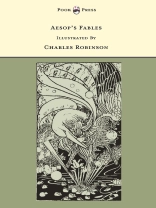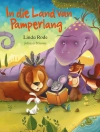This wonderful collection of moral tales from Aesop, the Ancient Greek slave and storyteller, features gorgeous illustrations by Arthur Rackham.
Aesop was an Ancient Greek slave with a remarkable gift for storytelling and is believed to have lived between 620 and 560 BCE. This collection features a variety of entertaining stories and thought-provoking morals that were first told by Aesop and were passed down from generation to generation until they were recorded in writing. The brilliant tales are accompanied by Arthur Rackham’s beautifully imaginative and humorous illustrations.
เกี่ยวกับผู้แต่ง
Grace Rhys (1865–1929) was an Irish writer best known for editing and collating fairy tale collections, including ‘Aesop’s Fables’ (1890).
ซื้อ eBook เล่มนี้และรับฟรีอีก 1 เล่ม!
ภาษา อังกฤษ ● รูป EPUB ● หน้า 64 ● ISBN 9781528782227 ● ขนาดไฟล์ 5.8 MB ● อายุ 17-17 ปี ● บรรณาธิการ Grace Rhys ● สำนักพิมพ์ Read Books Ltd. ● การตีพิมพ์ 2018 ● ที่สามารถดาวน์โหลดได้ 24 เดือน ● เงินตรา EUR ● ID 5743619 ● ป้องกันการคัดลอก Adobe DRM
ต้องใช้เครื่องอ่านหนังสืออิเล็กทรอนิกส์ที่มีความสามารถ DRM












